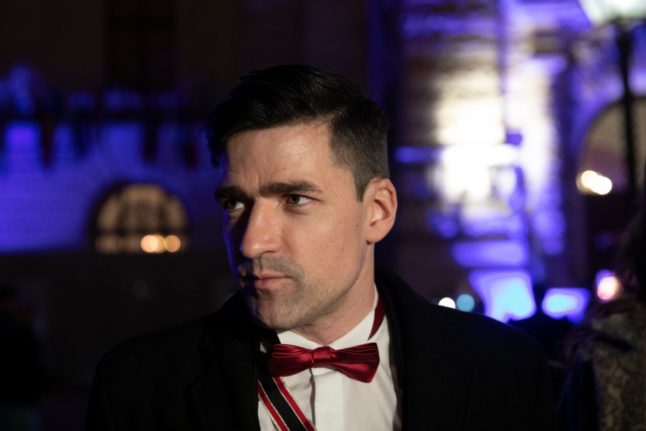Electricity and gas will be cheaper for Wien Energie consumers
Wien Energie has unveiled plans to lower electricity and gas prices for new customers and those switching contracts, effective April 1st. The move comes as the company aims to provide more competitive pricing options in the energy market.
Under the new pricing structure, the “Optima Entspannt” electricity tariff, which includes discounts, will decrease to approximately 14.9 cents net (around 18.9 cents gross) per kilowatt-hour. Similarly, the “Optima Aktiv” floating electricity tariff, adjusted monthly according to market trends, is expected to drop to around 7.3 cents net in April.
In addition to electricity, Wien Energie has announced reductions in gas prices. The “Optima Entspannt” gas tariff, featuring a one-year price guarantee, is anticipated to decrease by approximately 25 percent, while the “Optima Aktive” floating gas tariff will remain unchanged. Final prices will be determined by the end of March based on relevant indices.
Existing customers on older tariffs, such as night-time electricity, can expect significant price reductions starting April 1st. Wien Energie plans to lower prices by over 30 percent for around 30,000 electricity customers and approximately 57 percent for roughly 1,400 gas customers enrolled in old contracts.
Furthermore, the cost of charging electric vehicles is set to decrease, with consumption-based tariffs expected to drop by about 10 percent at the beginning of April. This move aims to encourage the adoption of electric vehicles and support sustainable transportation solutions.
READ ALSO: How to save money on energy bills in Austria
Four beautiful lakes you can easily reach from Vienna by public transport
Spring is here, and summer is on its way. It is the perfect time of the year for visiting some of Austria’s most beautiful lakes.
Amnesty International criticises the treatment of refugee orphans in Austria
Despite a notable decline in overall asylum applications in Austria, the Traiskirchen initial reception centre continues to grapple with a backlog, particularly concerning unaccompanied minor refugees (UMFs), Der Standard reported. While fewer refugees overall await admission or processing, the centre still accommodates hundreds of under-18s, primarily young males, who have travelled to Austria alone.
Recent provisional statistics indicate that 5,089 UMFs sought asylum in Austria in 2023, mainly from Afghanistan and Syria. Presently, approximately 210 unaccompanied minors reside in initial reception centres, many of whom have exceeded the expected duration of stay, some for more than a year.
Responsibility for the care and accommodation of UMFs typically transitions from federal authorities to state agencies after the asylum admission procedure. However, inadequate capacity in state-run facilities has resulted in the Federal Accommodation Agency (BBU) assuming continued care to prevent minors from homelessness.
Aimeé Stuflesser of Amnesty International Austria underscores this as a human rights violation, emphasising that unaccompanied refugee children are entitled to the same protection as any other child unable to reside with their family. Austria’s failure to meet this obligation stems partly from the absence of legal representation for unaccompanied minors upon arrival, a longstanding concern raised by NGOs.
Without legal guidance, these vulnerable individuals face heightened risks, including exploitation, trafficking, or engaging in illegal activities. The absence of comprehensive support exacerbates their precarious situation, prompting calls for urgent reforms to safeguard the rights and well-being of unaccompanied refugee minors in Austria.
READ ALSO: What’s the reason behind the drop in Austrian asylum seeker claims?
Austria wants to facilitate the recognition of foreign qualifications
Austria faces a pressing need for skilled labour, particularly in the healthcare sector. Still, validating qualifications for third-country individuals remains complex and time-consuming, Austrian media reported.
Minister Martin Polaschek of the centre-right ÖVP has announced plans to simplify and expedite qualification recognition procedures to facilitate foreign workers’ integration into the Austrian workforce.
Polaschek deems the system “unsatisfactory,” citing lengthy and intricate procedures. He advocates establishing a centralised contact point to oversee qualification recognition for non-EU citizens, involving expert input to ensure high-quality evaluation. He proposes reforms to eliminate the current form of nostrification at universities and universities of applied sciences (UAS), alleviating the burden on these institutions.
To advance these efforts, Polaschek intends to collaborate with Economics Minister Martin Kocher, with plans for a “nostrification summit” involving key stakeholders scheduled after Easter. While acknowledging the need for action, Ulrike Prommer, President of the Austrian University of Applied Sciences Conference, expressed caution regarding complete centralisation. She highlighted the surge in nostrification applications, particularly in the nursing sector, noting its time-consuming nature. Despite acknowledging the challenges, UASs remain sceptical about complete centralisation, according to Prommer.
Europe needs to step up circular economy efforts, EU agency says
The European Environment Agency warned Thursday that Europe must accelerate efforts to transform its economy into a circular one focused on reusing or repurposing materials to cut waste. This is a necessity if it is to meet climate targets.
“Decisive action is essential to reduce waste drastically, prioritise reduction of resource use, improve recycling rates and improve the introduction of products designed for circularity from the outset,” the Copenhagen-based agency said in a statement presenting a new report.
“We are still far from the ambition to double the Union’s circularity rate by 2030,” the EEA said, adding that there was a “low or moderate likelihood” that the EU’s ambitions would be “achieved in the coming years”.
According to the EEA, the heart of the problem is business models in which products have a very short lifespan — if they are used at all. A recent EEA study showed that four to nine percent of textiles introduced to the European market were destroyed without ever being used. The processing and destruction of returned or unsold textiles is responsible for the equivalent of 5.6 million tonnes of CO2 emissions.
At the same time, Europe’s circularity rate of 11.5 percent in 2022 still uses more recycled materials than any other region globally. But progress is slow, and policies to target waste have only been implemented in the past five years.
To speed up the transition, the EEA has identified several areas for improvement and a need to reduce overall consumption. It cited, for example, the promotion of higher-quality recycling, where materials retain their original function and value for as long as possible — to reduce imports. The agency also emphasised the importance of maximising the use and lifespan of products through reuse and repair.
Martin Sellner, Austrian far-right activist facing trouble abroad
After his radical ideas led to mass protests, Austrian far-right activist Martin Sellner this week grabbed headlines again by being deported from neighbouring Switzerland and banned from Germany.
In an interview with AFP, he insisted on his clean slate — “white, like freshly fallen snow” — and said he would fight against a “severe curtailment of my freedom to work, my freedom of expression and my freedom to travel”.
Revelations that he met with members of the Alternative for Germany (AfD) in Potsdam last November already sparked a huge wave of protests against the far-right party early this year, with tens of thousands attending demonstrations across Germany.
One of Sellner’s main proposals is “remigration,” expelling those without Austrian nationality “who are long-term unemployed” or living in “unassimilated parallel societies.”
“I think it’s good when ideas about terms like remigration become known,” said the 35-year-old, who talks with a reassuring tone. He also slams the press for, he says, creating around him “an aura of demonisation.”
“I have never committed an act of violence. I am simply a dissident, author and controversial activist,” said Sellner, who released a new book this month on his idea of “remigration”.
Sellner revealed on X on Tuesday that he has been banned from entering Germany for three years. This followed his arrest and deportation from Switzerland over the weekend, where police said they prevented a hundred-strong far-right gathering he was due to address.
His removal attracted attention online, including from Elon Musk, the billionaire owner of X, who asked, “Is this legal?”.
Sellner, who works as a graphic illustrator and is married to a US conservative political activist and writer, was banned from X. Twitter but was re-admitted earlier this month. Born into a well-to-do family in Vienna, he studied philosophy. In his youth, he was briefly part of the neo-Nazi scene — which he now says he regrets.
He co-founded the white pride group Austrian Identitarians in 2012, described by Austrian intelligence services as “agents of modern right-wing extremism” and whose symbols were banned in 2021. The group, with hundreds of members before the ban, espoused the far-right “Great Replacement” conspiracy theory, according to which non-white immigrants are deliberately supplanting white Europeans.
They were also known for anti-immigrant stunts in the past, climbing the roofs of buildings or spreading fake blood.
In 2021, Austrian prosecutors dropped an inquiry into Sellner over possible links with white supremacist Brenton Tarrant, who in 2019 killed 51 Muslims in attacks on two mosques in the New Zealand city of Christchurch.
Sellner and some of his associates were investigated when it emerged that in 2018, he had received a donation of €1,500 euros ($1,600) from Tarrant. Sellner admitted to having had contact with Tarrant on several occasions.
Analysts say whereas Sellner’s following has dipped in recent years after his links with Tarrant were revealed, his ideas and ideologies have been “seeping into the mainstream” after the mass protests in Germany and as far-right politicians are gaining ground across Europe.
“Their topics and strategies are on everyone’s lips, so to say,” Judith Goetz, an expert on far-right extremism at the University of Innsbruck, told AFP.
In addition, in Austria, the opposition far-right Freedom Party (FPOe) has espoused its ideas. According to polls, it is currently the Alpine EU member’s leading political force, garnering around 30 percent ahead of elections expected in September.
According to Kathrin Gloesel, a far-right expert and editor-in-chief of the social democratic magazine Kontrast, the identitarians provide “a useful strategy laboratory” for the FPOe.
If you have any questions about life in Austria, ideas for articles or news tips for The Local, please get in touch with us at [email protected] or leave a comment below.



 Please whitelist us to continue reading.
Please whitelist us to continue reading.
Member comments